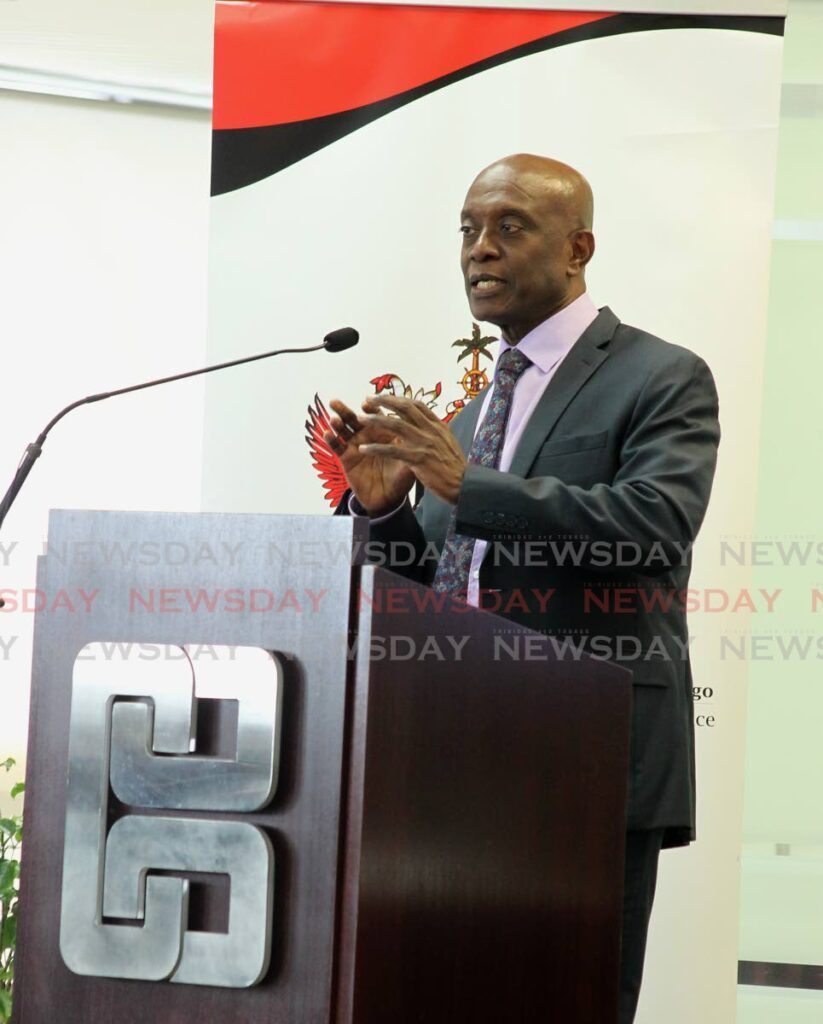Central Bank governor delivers AI-generated address – with warning

PERSONAL use and workplace adoption of artificial intelligence (AI) have skyrocketed with the advent of Chat GPT and similar readily available open-source AI tools.
The AI platforms are undoubtedly powerful, with a database almost equivalent to the entirety of the public internet.
But AI-generated responses are often rife with cliches or exaggerations and sometimes outright falsehoods.
Even then, it's not always immediately apparent that it wasn't written by a human, as demonstrated in a tongue-in-cheek introduction by Central Bank governor Alvin Hilaire.
Hilaire delivered welcome remarks during a webinar and panel discussion hosted in collaboration with the Bank for International Standards (BIS), at the Central Bank, Port of Spain, on Thursday.
“As we gather today,” he said, “We recognise the profound impact AI is having on the financial landscape, presenting both unprecedented opportunities and formidable challenges in this pivotal dialogue.”
Trying to suppress laughter, he continued, “AI is reshaping cybersecurity strategies, the evolving threat landscape, and the imperative for collaboration in safeguarding our financial systems.”
Those two lines were just some of the feedback Chat GPT generated in seconds, guided by just a few prompts, Hilaire revealed.
He prompted Chat GPT, “Write introductory remarks for a panel discussion on AI and cyber security; the remarks are to last about one minute; the audience consists of various central banks and the media.”
The Central Bank hosted the event with BIS to tackle the issues of AI, cyber resilience and cyber security. The BIS is an international financial institution owned by its 63 member central banks. The Switzerland-based co-operative organisation serves as a bank for the central banks and major financial institutions, including the US Federal Reserve.
Sukhvin Notra, senior security specialist at BIS, delivered a presentation showing the rise of AI adoption in many industries and their vulnerabilities.
Notra said while AI is often accurate and reliable, it can be deceptively wrong, providing sources via web links, which sometimes never existed.
Generic and tailor-made AI programmes adopted by companies, he said, are vulnerable targets for scammers, given its reliance on sensitive data.
The criminal use of AI has cost companies billions globally over the past couple of years.
Notra highlighted a case in which scammers targeted a company in China in February and made off with US$25 million after impersonating its chief financial officer.
The scammers fed AI with hours of interviews with the CFO and trained it to mimic his voice, image and movement, which then convinced an employee during a Zoom meeting to transfer the funds to a private account.
Cybersecurity threats, panellists agreed, can be mitigated using traditional anti-malware programs.
But training and encouraging employees to use their discernment against hostile AI are also increasingly critical for them to combat the escalating problem.
Hilaire, in his own words, told the audience, “We have to be very careful of identity theft, misrepresentation and mimicking of our data and systems.
“Efficiency is possible with AI, but of course, this comes with some flip sides,” he said, like biases, which are often a reflection of human biases fed to the system.

Comments
"Central Bank governor delivers AI-generated address – with warning"